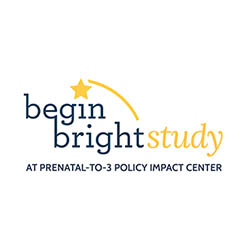In 2023, many states made major progress to address poverty, the child care crisis, birth outcomes, and more.
Press Contact: Molly Kramer, 615-343-8948, molly.m.kramer@vanderbilt.edu
American families are struggling. A national funding cliff is making child care even less affordable and accessible, the Medicaid unwinding means dropped coverage for millions, and child poverty has doubled after the end of the federal child tax credit (CTC). A new report from early childhood policy experts at Vanderbilt University explains how state policy choices impact family resources—and help offset the impact of many of these national challenges. The variation across states is substantial.
Today, the Prenatal-to-3 Policy Impact Center released the 2023 State Policy Roadmap, an annual guide for each state to assess the wellbeing of its infants and toddlers, identify evidence-based solutions, and monitor national trends in state policies.
The Roadmap ranks each state on the impact state policy choices have on family resources. The 2023 Policy Impact Calculator demonstrates striking variation that results from different state choices about minimum wage, child care subsidies, tax credits, and other benefits. In our simulation, a full-time working mother with an infant and toddler in the District of Columbia has at least $46,950 to provide for her family, whereas that same mother in Georgia has only $20,560—less than half as much.
“The research is clear. States can influence families’ ability to endure national economic challenges and provide their children with essential resources to thrive,” said Dr. Cynthia Osborne, Executive Director of the Prenatal-to-3 Policy Impact Center and Professor of Early Childhood Education and Policy at Vanderbilt University. “Fortunately, many states made evidence-based investments in early childhood this year. Today, we celebrate that progress.”
The 2023 Roadmap shows positive trends in state action to reduce poverty and improve child wellbeing through paid family leave, earned income tax credits (EITCs), and other evidence-based policies. Several states addressed the child care crisis by reforming and investing in subsidies, supporting worker compensation and benefits, and expanding access for families. Another positive national trend is 2023 state efforts to support access to community-based doulas, an evidence-based approach to improve child birth outcomes such as preterm birth.
States who showed leadership in 2023 to invest effectively in children include:
- North Carolina: Expanded Medicaid (effective December 2023), which will help families access medical resources that improve child birth outcomes, health, and development. Increased Medicaid reimbursements to incentivize group prenatal care, which supports breastfeeding initiation and maternal mental health. Passed a law raising child care subsidy reimbursement rates for higher-quality providers.
- Minnesota: Created a 12-week paid family leave program (to be fully implemented in 2026), which will allow parents to spend time with their new child and empower them to seek timely and preventive health care needed by newborns. Passed several historic laws investing hundreds of millions of dollars in a wide range of programs for infants, toddlers, and young children. Increased child care subsidy reimbursement for providers, expanded access through subsidies and scholarships, and supported child care educators and businesses. Increased Medicaid reimbursement for doulas. Revised their EITC and, in doing so, expanded their CTC to the most generous level in the country.
- Vermont: Enacted a historic investment for children and families, increasing access to child care subsidies and raising reimbursement rates for providers. Enacted legislation to extend EITC and CTC eligibility to all taxpayers regardless of immigration status. Extended pregnancy Medicaid coverage to keep new parents from losing insurance coverage too quickly after giving birth.
View the full Roadmap at https://pn3policy.org/pn-3-state-policy-roadmap-2023/:
- Find your state’s ranking in the Policy Impact Calculator.
- Find your state’s ranking in 20 child and family measures of health and wellbeing.
- Find your state’s overall 2023 summary.



